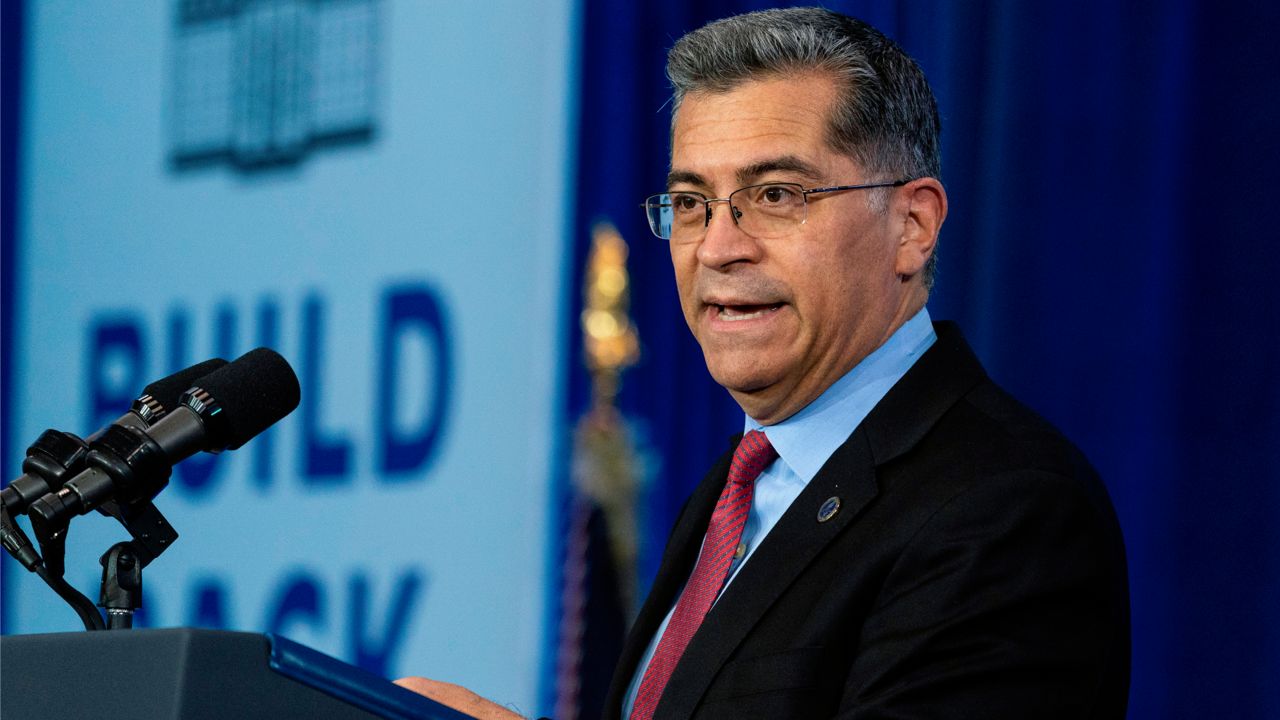IRVINE, Calif. — When President Joe Biden gave the State of the Union Address, he touched on mental illness and promised to help Americans through what’s considered a growing epidemic.
U.S. Health Secretary, Xavier Becerra, made his way to Irvine Wednesday to assure local leaders of federal help. Becerra, formerly the California Attorney General, was appointed by Biden to run the agency.
While Orange County has acknowledged rising problems with mental health, it’s not alone. The country is in the midst of a national mental health crisis, the Kaiser Family Foundation reports. Two out of five adults have reported anxiety or depression as a result of the pandemic, the foundation reports.
The officials gathered at Orange County’s Great Park to take inventory of the crisis and share some of the steps the city of Irvine has taken and what federal lawmakers can do to give local government more tools. U.S. Rep. Katie Porter, D-Calif., joined Becerra along with Irvine Mayor Farrah Khan and city Councilmember Tammy Kim.
“We’re coming up with some of the most innovative and compassionate programs,” Porter said.
Theirs was not a pitch to Becerra, but a public summation of ongoing discussions to add and expand mental health services to the city and the county.
The most discussed service in recent months has been "Be Well OC," a county project which has dumped funding into drug addiction and mental health treatment. A key and growing program is the "Be Well OC" crisis intervention team, a series of blue vans that deploy EMTs or other personnel to help people suffering from a drug or mental health episode.
Becerra said that’s the kind of program he’s interested in bolstering. He also mentioned his support of pairing mental health professionals with police officers for non-violent mental health calls. Officials countywide have repeatedly said they don’t feel police alone are best equipped or trained to deescalate a mental health or drug crisis.
The county has already invested in some of the solutions Becerra is interested in advancing. The HHS can’t unilaterally fund programs, but Becerra said he could deploy seed funding for promising pilot programs.
Orange County already tried a pilot program for the blue crisis intervention vans. That program was so successful that Huntington Beach added another van, Newport Beach launched its own and Irvine is now gearing up to join in.
But the county has more work to do. "Be Well OC" officials have mentioned adolescent mental health as a key area of expansion. Some school districts in the county have already begun programs, like the Tustin Unified School District, which has an emergency mental health response team.
Porter said she and other colleagues are working on legislation that could give local government more money for mental health spending. She sponsored the Mental Health Justice Act last February. That bill, co-sponsored by 27 other California lawmakers, seeks to give states the money to work on mental health solutions locally. The lone Californian from across the aisle to co-sponsor the bill was Rep. Michelle Steel, R-Calif.
Porter co-authored a New York Times op-ed on the bill last year.
“Rather than creating a national program for a national problem, the legislation focuses on local solutions that might solve it in the aggregate,” the editorial said.
Becerra said Biden is motivated to get more resources of states and local municipalities to add or expand services that specifically treat mental health. That includes money for mental health care professionals in schools or institutions like "Be Well OC." HHS is already planning $225 million to invest in pilot programs and physician training by the fall.
Biden has also announced the 988 mental health crisis service hotline, which Becerra said will begin on July 15. The $180 million program, funded by federal dollars, will back up local call centers with national ones capable of answering calls or responding to text messages.
Becerra noted that OC programs may provide a model for what other states could try.
“You’re ahead of the pack,” Becerra said. “That’s a good thing.”
CORRECTION: An earlier version of this story incorrectly listed the co-author of the New York Times op-ed. The error has been corrected. (March 10, 2022)



